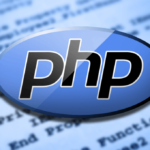PHP remains a dominant language for web development, and its robust frameworks make coding easier, faster, and more efficient. In 2025, several PHP frameworks stand out for their ability to simplify complex development tasks while maintaining scalability, security, and performance. Here are the top 7 PHP frameworks to know in 2025.
1. Laravel
Why Laravel?

Laravel continues to lead the pack as the most popular PHP framework in 2025. Known for its elegant syntax and developer-friendly features, Laravel simplifies common tasks like routing, authentication, and caching.
Key Features:
- Blade Templating: A powerful templating engine that simplifies UI creation.
- Eloquent ORM: Intuitive database interaction with minimal code.
- Built-in Tools: Features like Artisan CLI, robust authentication, and API support.
- Active Community: Extensive documentation and a thriving ecosystem.
Ideal For:
Building modern web applications, e-commerce platforms, and APIs.
2. Symfony
Why Symfony?

Symfony’s flexibility and modular approach make it a top choice for enterprise-level projects. Its reusable components and strict adherence to PHP standards make development streamlined and professional.
Key Features:
- Reusable Bundles: Modular components that can be integrated into other projects.
- Twig Templating: A fast and secure templating engine.
- Flexibility: Highly customizable for complex business applications.
- API Platform: Simplifies API creation and management.
Ideal For:
Enterprise-grade applications, APIs, and complex systems.
3. CodeIgniter
Why CodeIgniter?

CodeIgniter remains a favorite for its lightweight structure and speed. It is a great choice for developers looking for simplicity and performance.
Key Features:
- Minimalistic design for faster performance.
- Easy Configuration: Simple to set up and deploy.
- Built-in Security Tools: Protection against CSRF, XSS, and SQL injection.
Ideal For:
Small to medium-sized applications and projects requiring quick deployment.
4. CakePHP
Why CakePHP?

CakePHP’s convention-over-configuration approach ensures rapid development with less repetitive coding. It’s beginner-friendly and offers powerful tools for advanced developers.
Key Features:
- Zero Configuration: Automatically detects settings and configurations.
- Scaffolding: Quickly build prototypes and CRUD operations.
- ORM Integration: Simplifies database interactions.
Ideal For:
Rapid prototyping, CMS development, and database-driven applications.
5. Phalcon
Why Phalcon?

Phalcon stands out as a high-performance PHP framework written in C and delivered as a PHP extension. Its low overhead ensures blazing-fast execution.
Key Features:
- Uses minimal resources for maximum speed.
- Built-in ORM: Offers powerful database interactions.
- Volt Templating Engine: Lightweight and secure templating.
Ideal For:
Performance-critical web applications and real-time systems.
6. Yii Framework
Why Yii?

Yii’s name (“Yes It Is!”) reflects its simplicity and versatility. It’s a full-stack framework offering robust tools for modern web applications.
Key Features:
- Gii Code Generator: Automatically generates code for models, controllers, and more.
- Integration-Friendly: Works well with third-party libraries.
- Secure Development: Includes features like input validation and SQL injection prevention.
Ideal For:
Web applications, portals, and highly secure projects.
7. Laminas (Formerly Zend Framework)
Why Laminas?

Laminas is a mature framework built for modern PHP development. Its component-based design allows developers to use only the features they need.
Key Features:
- Component-Based: Use individual modules without the full framework.
- Extensive Libraries: Includes features for authentication, caching, and form validation.
- Scalable: Ideal for large-scale, enterprise-grade applications.
Ideal For:
Enterprise applications, RESTful APIs, and scalable web solutions.
How to Choose the Right PHP Framework?

Selecting the best framework depends on your project requirements. Here are some tips:
- For Beginners: Laravel or CodeIgniter.
- For Performance: Phalcon.
- For Enterprises: Symfony or Laminas.
- For Prototyping: CakePHP or Yii.
Conclusion
PHP frameworks in 2025 offer a wide range of options to simplify development, enhance performance, and deliver secure applications. Whether you’re a beginner or an experienced developer, frameworks like Laravel, Symfony, and Phalcon ensure you can build efficient, scalable websites and applications. Explore these frameworks to find the perfect match for your next project!

